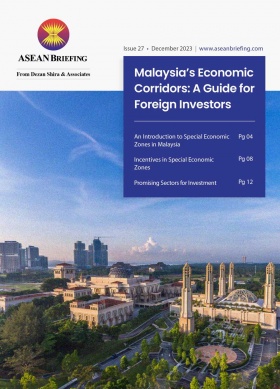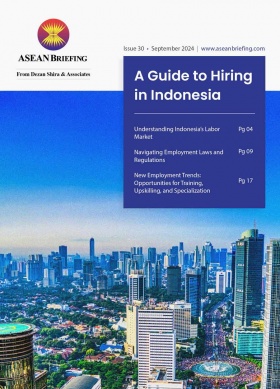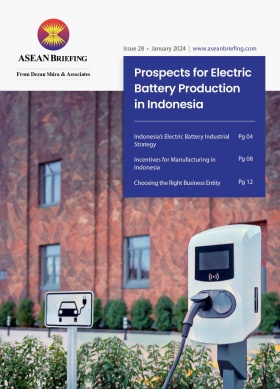India Joins Project Nexus: Enhancing ASEAN Economic Ties
In June 2024, the Reserve Bank of India (RBI) officially joined Project Nexus, marking a milestone in India’s integration with ASEAN’s financial infrastructure. By aligning itself with Project Nexus, India is not only enhancing its cross-border payment capabilities but also expanding its economic ties with some of the region’s most dynamic economies. The project’s main advantage lies in its ability to connect multiple countries’ payment systems under one platform, eliminating the need for individual, custom connections between nations.
India’s role and RBI’s strategic position
India’s participation in Project Nexus underscores the country’s growing influence in the global financial ecosystem. The Reserve Bank of India (RBI) is positioned as a key player in this multilateral initiative, primarily due to the widespread adoption and success of India’s domestic Fast Payments System (FPS)—the Unified Payments Interface (UPI). UPI has revolutionized the way Indians conduct financial transactions, both domestically and increasingly, internationally. By joining forces with ASEAN countries under Project Nexus, India aims to extend the reach of its FPS and further enhance cross-border payment systems.
istorically, the RBI has been actively engaging in bilateral partnerships to link UPI with the fast payment systems of other nations. These collaborations have successfully enabled seamless Person-to-Person (P2P) and Person-to-Merchant (P2M) payments across borders. However, a bilateral approach has its limitations, primarily due to the complexities of establishing unique connections with each country.This is where Project Nexus offers a transformative solution. Instead of creating separate bilateral links, the Nexus platform will serve as a multilateral hub, enabling countries to connect their FPS through a single, unified system. This allows India, along with the founding ASEAN members—Malaysia, the Philippines, Singapore, and Thailand—to streamline their payment processes under a centralized framework.
Technological framework and interoperability
The project hinges on connecting the domestic Fast Payment Systems (FPS) of participating countries—currently including India, Malaysia, the Philippines, Singapore, and Thailand—into a unified platform. This framework is built around the idea of interoperability, which allows various national payment systems to communicate and transact seamlessly with one another.
The technological backbone of Project Nexus is the Nexus platform itself, developed by the Bank for International Settlements (BIS) Innovation Hub. This platform acts as a standardized hub, allowing each participating country to link its FPS to Nexus rather than building complex, custom connections for every cross-border partner.
Benefits for businesses
For investors, business leaders, and consumers alike, the benefits of ASEAN’s Project Nexus are vast. This initiative is poised to revolutionize cross-border payments by offering faster, more efficient, and cost-effective solutions. One of the most immediate advantages for businesses, especially small and medium-sized enterprises (SMEs), is the drastic reduction in transaction times, enabling smoother cash flow and better liquidity management.
In addition to faster payments, the platform aims to lower the costs associated with cross-border transactions. By creating a multilateral framework that interlinks domestic Fast Payment Systems (FPS), Project Nexus eliminates the need for complex, bilateral payment arrangements.
Security is another vital benefit of the initiative. Project Nexus will integrate advanced security protocols, ensuring that cross-border payments are not only faster but also safer.
Strengthening India-ASEAN economic ties
India’s participation in Project Nexus marks a significant leap in strengthening economic ties between India and the ASEAN region. As one of the fastest-growing economies, India’s inclusion in this multilateral financial initiative is expected to enhance trade, investment, and financial connectivity with ASEAN’s dynamic economies, such as Singapore, Malaysia, and Thailand.
With over $100 billion in annual trade between India and ASEAN, seamless cross-border payments through Project Nexus can potentially boost trade volume further by reducing transaction friction. Businesses will benefit from quicker transactions and reduced costs, enhancing liquidity and operational efficiency. Sectors such as technology, manufacturing, and services, which are key to both regions, could see accelerated growth as businesses can settle payments faster and at lower costs.
Expansion plans
By 2026, BIS plans to expand Nexus to more countries, creating a global payment infrastructure. The goal is to have a platform connecting any country’s domestic FPS to Nexus, allowing for seamless, real-time international payments across a broad range of jurisdictions.
The expansion strategy will prioritize economies with well-developed FPS or those willing to adopt the necessary technological infrastructure. Countries in regions like Europe, Latin America, and Africa have already shown interest in joining the project, recognizing the potential benefits for their cross-border payment systems.
The project’s growth also aligns with the G20’s Roadmap for Enhancing Cross-Border Payments, which emphasizes the need for faster, cheaper, and more transparent global transactions.
About Us
ASEAN Briefing is one of five regional publications under the Asia Briefing brand. It is supported by Dezan Shira & Associates, a pan-Asia, multi-disciplinary professional services firm that assists foreign investors throughout Asia, including through offices in Jakarta, Indonesia; Singapore; Hanoi, Ho Chi Minh City, and Da Nang in Vietnam; besides our practices in China, Hong Kong SAR, India, Italy, Germany, and USA. We also have partner firms in Malaysia, Bangladesh, the Philippines, Thailand, and Australia.
Please contact us at asean@dezshira.com or visit our website at www.dezshira.com and for a complimentary subscription to ASEAN Briefing’s content products, please click here.








